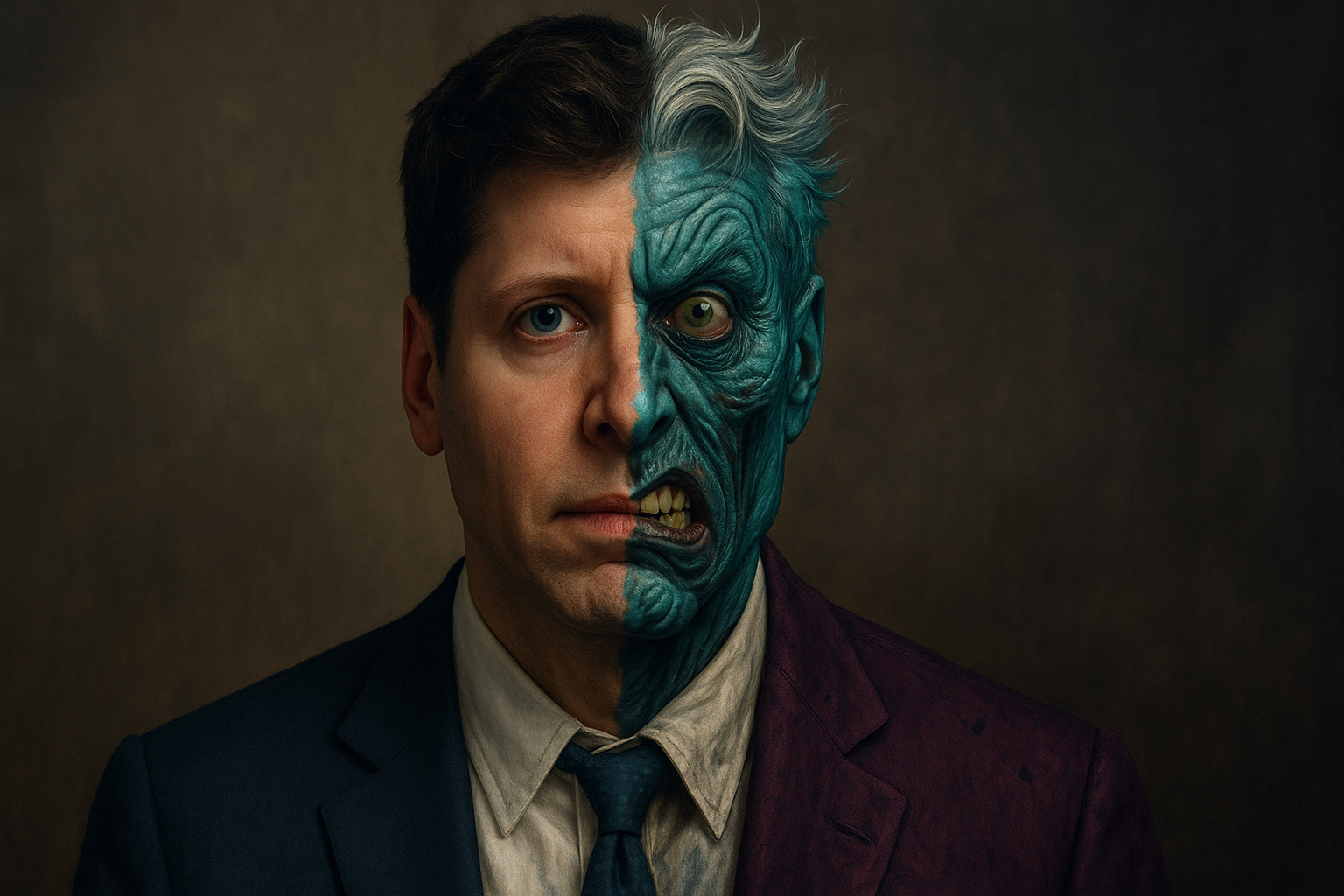OpenAI CEO Sam Altman has published a new blog post titled The Gentle Singularity, and it’s a wild ride. He claims humanity has already passed the point of no return when it comes to artificial intelligence. According to him, the future is not just near. It is basically here.
Altman writes that AI systems are already smarter than people in many ways and that the hardest part of the work is behind us. He says 2025 has brought agents that can perform real cognitive labor. Next year, he expects AI to start producing novel insights on its own. And by 2027? Altman suggests we might see robots completing real-world tasks. Whether that excites you or keeps you up at night probably depends on how much you trust the people building this stuff.
To Altman, this exponential climb feels smooth. Sure, we are not living in a robot-infested future just yet. But the tools we are using today are already reshaping the world. He points to ChatGPT as being more powerful than any human who has ever lived. That might sound extreme, but when hundreds of millions of people rely on it daily, it is not hard to see why he makes that claim.
He believes AI is going to unlock better science, higher productivity, and endless creativity. But he also acknowledges that even small alignment issues can cause enormous harm at scale. As power spreads faster than our ability to regulate it, risks compound.
Altman draws comparisons to the industrial revolution and says humans are good at adapting. He expects entire job categories to disappear but believes wealth and productivity will grow so rapidly that we will invent new types of work just as quickly. He even jokes that future generations will have “fake jobs” that feel deeply important to them, just as our modern desk work would have baffled ancient farmers.
But here is where things get especially interesting. Altman describes a world where robots build robots. Where datacenters replicate themselves. Where intelligence becomes so abundant that it costs about as much as flipping on a light switch. He talks about recursive self-improvement and a future where AI does the research needed to build even better AI.
That is not just science fiction anymore. It is what he calls a “larval version” of AI systems improving themselves. If that does not give you a slight chill, you might not be paying attention.
He admits safety is a real issue. He compares misaligned AI to social media algorithms that hijack our attention and says that is exactly what we need to avoid. His solution? First, solve the alignment problem so AI works toward our actual long-term goals. Then, make superintelligence cheap and accessible so no single country or company can hoard it.
That sounds nice on paper. But it assumes a lot. It assumes we will solve alignment before someone deploys something dangerous. It assumes AI companies will share power instead of consolidating it. It assumes governments will keep up. That is a big ask.
And then comes the kicker. Altman says OpenAI is building a “brain for the world.” He wants it to be easy to use and personalized for everyone. That might sound exciting. It might also sound like something out of a cyberpunk novel.
In the end, Altman says the path ahead is “lit” and that intelligence too cheap to meter is within reach. Maybe that is true. Maybe not. But if someone had told you in 2020 where AI would be in 2025, you probably would not have believed them either.
So here we are. Standing on the edge of something big. Hoping the people with their hands on the controls know what they are doing.


